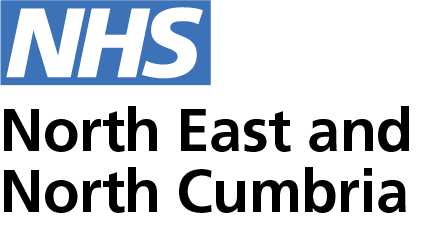Case study: Digital First Primary Care investment in practice online offerings
Olivia Temple, a website content development manager has worked with one primary care network (PCN) in Gateshead to help them develop and promote their online offerings to patients.
Funded by the Digital First Primary Care (DFPC) programme, the region has received investment to digitise primary care services. In this case study we examine how the PCN has invested a share of the funds to improve their online offerings to patients. DPFC is changing how patients interact with NHS services, by helping them access the right advice, support and treatment using online tools.
Background
The Gateshead Inner West PCN covers five GP practices, they commissioned Olivia to work with them to help make sure their web content was accessible, informative and appealing to their patients.
The work was part of a wider programme testing digital approaches to triaging patients as part of the response to the COVID-19 pandemic. Each of the practices in the PCN was looking at different aspects such as video consultations and maximising use of online consultations.
Olivia has worked with the PCN since July 2021 and was funded to create a central Gateshead Inner West PCN website in addition to one for each of the five GP practices. The PCN decided to use MySurgeryWebsite so they had a consistent look and feel across the six websites. Olivia worked with each of the practices to write and develop the content from a range of sources. Her overall aim as part of the project was to develop the websites, but also to ensure that patients were aware of and using the digital solutions on offer.
Staff engagement
Olivia worked with all five practices to train staff so they can edit and add content to their website. She also trained them to create interactive content such as surveys so they can gather feedback from patients. As the work was taking place during the COVID-19 pandemic she couldn’t meet with patients face-to-face to ask them their views on the website, so she used a series of online surveys to gather feedback. One of these surveys was to test the accessibility of the new websites once they were developed. A link to the survey was shared by text message and on the surgeries Facebook pages to encourage feedback.
Digital skills
Olivia said: “A key finding from this was the level of digital illiteracy amongst the patients who responded. One of the surveys received hundreds of responses which was sent out after the websites were developed. It posed questions about accessibility as the previous sites did not score well on this measure. Accessibility improved on the new sites, but some patients reported they needed support in accessing online service such as the NHS App. This is more challenging to address remotely but as we move to more face-to-face interaction, it’s something the practices will need to put in place to support some of their patients.”
Another key insight was the lack of awareness patients had about the websites and the types of online services that were available. This means that now their social media channels can promote web content and access to online services as part of an awareness raising campaign.
Other changes to the site included issuing regular updates in line with COVID-19 guidance so patients were up to date with procedures and processes. She also updated photographs and made the sites look more visually appealing.
Ongoing evaluation
Olivia also looks at Google Analytics for each of the websites to understand more about user behaviour. She uses insights from these analytics to help drive traffic to particular pages. She advises practices to share certain links on their social media channels and can see an immediate impact when this happens.
Olivia said: “Its all about driving up usage of the pages and for patients to see there’s useful information and digital tools available to them. We will carry on gathering insights from Google Analytics and patient feedback to make sure the websites continue to meet the users’ needs.”
Whilst the impact of COVID-19 did present challenges as all the work had to be carried out remotely including the training with staff, and face-to-face interaction with patients wasn’t possible, and support from GP practice staff at a time of intense pressure. Feedback from staff was very positive and Olivia remains on-hand to support practices if they have any queries relating to their websites.
Dr Jonathan Harness, a GP at Glenpark Surgery said: “Accessing primary care services using digital solutions doesn’t work for everyone. However, by making the best use of our online presence means that for the patients who can benefit from using online access helps us to prioritise and manage our caseloads.”
Olivia's top tip!
Engage with your audience! Olivia regularly carried out surveys asking for feedback from patients to ensure she was on the right track and presenting content in a way that was easy to find and useful.

